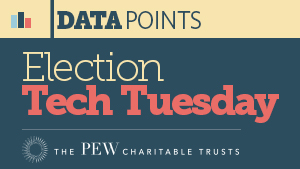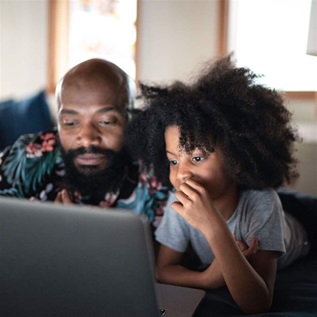Election Tech Tuesday: Largest Election to Date Draws Social Media Innovation
This Election Data Dispatch series explores emerging issues in elections technology and their relationship to the future of voting and civic engagement in America.

Largest Election to Date Draws Social Media Innovation
A record 66.38 percent of India’s 814 million eligible voters cast ballots—the most in world history—during the five-week election held in stages from April 7 to May 12. Technology companies worked to engage the hundreds of millions of voters, providing candidate information, offering forums for debate and discussion, and tracking turnout and returns in multiple languages during the voting period.
According to Twitter India, 56 million election-related tweets were sent from Jan. 1 to May 12. Tata Consultancy Services partnered with Twitter India to create the Android app TCS iElect, which used data analytics to offer the public a new way to observe and participate in social conversations related to elections. The app analyzed tweets to gauge public sentiment about politicians, issues, and parties, and highlighted where parties and campaigns were making an impact. The top 10 retweeted election tweets included a selfie of Narendra Modi (@narendramodi), who was elected prime minister.
Google’s Know Your Candidates tool collected publicly sourced data that allowed voters to find the educational background, YouTube bio, social media links, and other disclosed information on a candidate in five languages. Throughout March and April, the Google+ Election Hangout series hosted 16 political leaders throughout the country to discuss political issues.
Voxta, a speech technology startup dubbed “the political Siri,” was the first tool to utilize Hindi speech recognition to search for information about public policy and candidates. It also offers speech recognition capabilities in three other Indian languages. The Bharatiya Janata Party used Voxta as a service to millions of its potential voters and party members, who simply called a number to listen to live speeches and messages on specific issues.
In early March, Facebook launched an election tracker to rank Indian candidates by how often they were mentioned on the social media platform. From the day elections were announced until the day polling ended, 29 million Indians conducted 227 million interactions, including posts, comments, shares, and “likes” regarding the election. Facebook’s “I’m a Voter” button, the digital version of the “I Voted” sticker, was used by 4 million voters. The company is offering the button for the U.S. midterm and other elections around the world in 2014. Facebook first implemented the feature during the 2012 U.S. presidential election.
Follow us on Twitter using #electiondata and get the latest data dispatches, research, and news by subscribing today.











